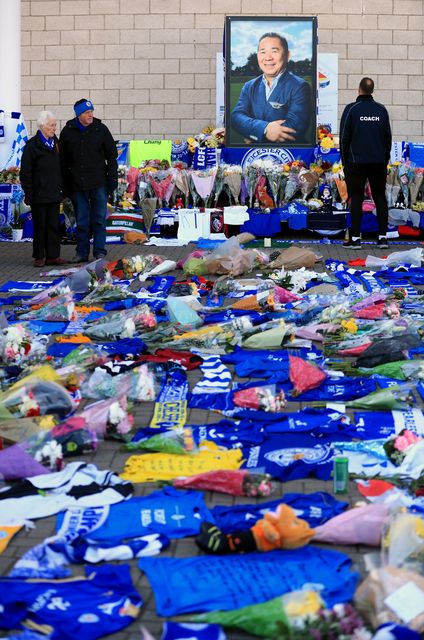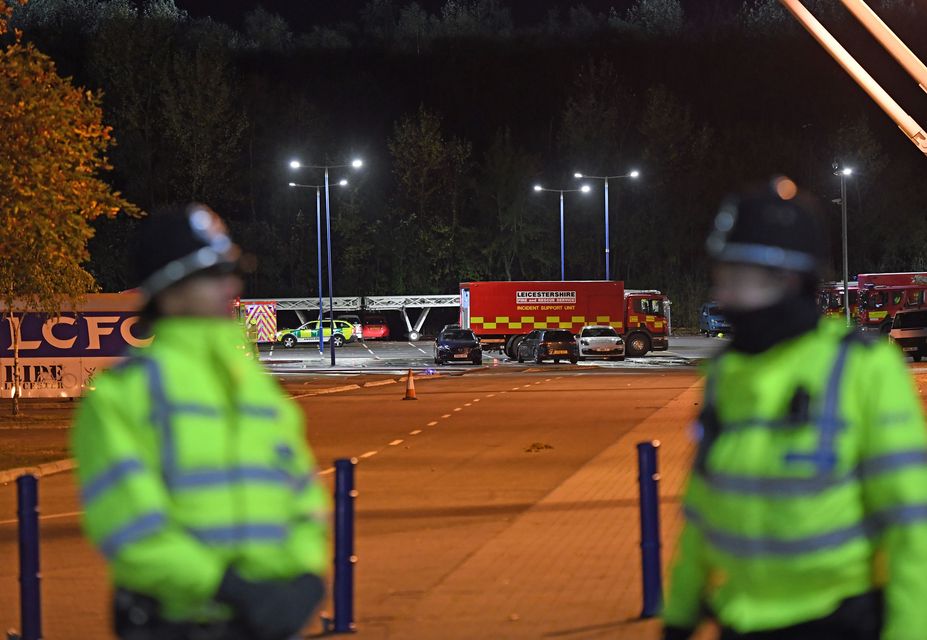The Leicester City Football Club owner and three others who were killed in a helicopter crash outside the King Power Stadium may have survived if the aircraft had not caught fire, an inquest has heard.
Vichai Srivaddhanaprabha, referred to in court as Khun Vichai, died on October 27 2018 when his helicopter, a Leonardo AW169, spun out of control and burst into flames after crashing while it was leaving the stadium after a match.
An inquest at Leicester City Hall is also looking into the deaths of the helicopter’s pilot Eric Swaffer, his partner Izabela Lechowicz, and passengers Nusara Suknamai and Kaveporn Punpare.
Tributes were left outside the King Power Stadium (Mike Egerton/PA)
During a hearing on Wednesday, a jury was told that the victims would have succumbed to the fumes “rapidly” causing them to lose consciousness.
Dr Michael Biggs, a forensic pathologist who completed post-mortem examinations for all five people, told the hearing that the cause of death for four of them, including Khun Vichai, was inhalation of smoke.
Dr Biggs told the hearing: “It was a very intense fire in an enclosed space, the occupants would have succumbed quickly to the effects of the smoke inhalation.”
The pathologist added that the four who died from the smoke also had some minor traumatic injuries, including lower spine fractures, which are consistent with “crush fractures”, but these would not have been fatal.
He said: “There is nothing of the other four individuals that inevitably would have been fatal. It is entirely possible, indeed likely, that had it not have been for the fire, they (the injuries) would have been survivable.”
Emergency services outside the King Power Stadium (Joe Giddens/PA)
Ms Lechowicz’s cause of death was given as “significant” head and chest injuries.
The pathologist said of her injuries: “In my opinion Izabela would have died extremely quickly at the point of impact due to traumatic injuries rather than this being a case of smoke inhalation after the fire started.”
He added that there was no evidence of medical incapacitation shown during the pilot’s post-mortem examination which may have contributed to the crash.
The inquest has heard that a mechanical failure in the tail rotor of the helicopter caused a bearing to “seize and lock”, making the helicopter spin out of control before it landed on its side and a significant fuel leak ignited creating a “wall of flames”.
The inquest, which is expected to last two to three weeks, continues.

